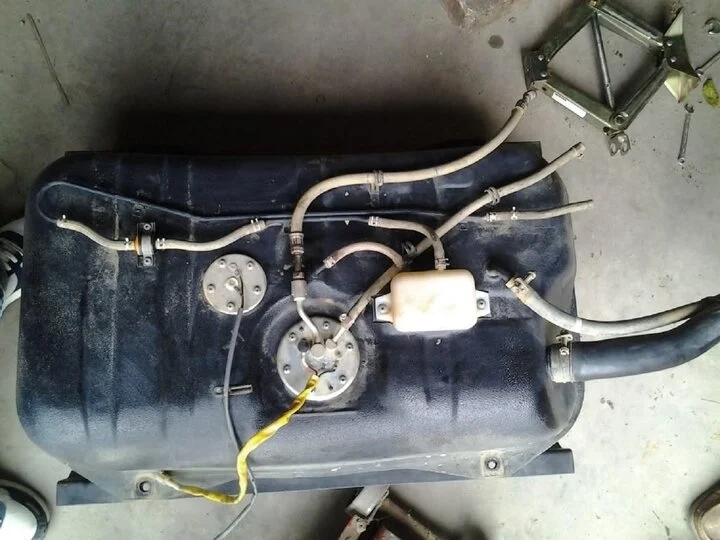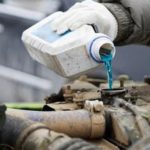Water-contaminated gasoline and diesel can cause vehicles to have difficulty starting or fail to start altogether. Affected vehicles may also experience poor acceleration, with the engine feeling weak when the accelerator is pressed. Additionally, the vehicle may experience jerking and stuttering while driving and may even stall.
If left untreated, water-contaminated fuel can also damage the fuel pump and cause rust in the fuel tank. It is important to address this issue promptly to prevent further damage to the vehicle.

During the rainy season, deep flooding can cause water to enter the gas tank. (Illustrative image)
If your vehicle exhibits any of the above symptoms, it is important to take it to a repair center as soon as possible to have a technician diagnose and fix the issue.
In the event of water-contaminated gasoline, it is necessary to drop the fuel tank, clean it thoroughly, and flush the fuel injectors, spark plugs, and fuel pump. The fuel filter should also be replaced, and fresh gasoline should be added to the tank to restore normal vehicle operation.
Engine oil is also susceptible to water contamination, often due to a loose camshaft seal or water ingress during high-pressure washing. Additionally, deep water ingress can occur when a vehicle enters a flooded area, with water entering through the exhaust system and reaching the engine.
Water entering the engine can mix with the engine oil, compromising its lubricating properties and leading to engine seizure and damage. In deep flood situations, if the driver is not careful and attempts to drive through, the risk of severe engine damage is significantly increased.
Contaminated engine oil will take on a milky, coffee-with-cream appearance, so it is important for vehicle owners to regularly check their engine oil and be vigilant for this sign.
In the event of water-contaminated engine oil, it is imperative to change the oil and filter. If the issue is determined to be a result of a loose camshaft cover gasket, the gasket should be replaced, and the camshaft cover should be tightened to the correct specifications.
If the contamination occurs due to deep water ingress but the engine can still be turned over by hand, it indicates that the engine has not sustained severe damage. In this case, changing the oil and filter, removing and drying the spark plugs, and then attempting to start the engine will push any remaining water out of the system. After this, the spark plugs can be reinstalled, and the engine should operate normally.
However, if a large amount of water has entered the engine and caused severe damage, such as bending the connecting rods, it will be necessary to disassemble and repair the engine.
To minimize the risk of water contamination in gasoline and engine oil, it is important to take preventive measures:
Choose reputable gas stations to refuel, as this can help avoid issues with fuel quality and potential fraud. Avoid filling up at gas stations that have recently been flooded, unless absolutely necessary.
Exercise caution when driving through flooded areas, as deep water can enter the engine and cause significant damage.
Do not direct high-pressure water at the engine compartment when washing your vehicle, as this can force water into sensitive areas.
According to VTC News
The Hidden Financial Risks for Pregnant Women from COVID-19 Outbreak
In a scientific study, researchers examined data from 598 hospitalized pregnant women with positive results for COVID-19. They discovered that approximately 75% of these women were asymptomatic, highlighting the potential for pregnant individuals to carry and transmit the virus without displaying any symptoms. This finding emphasizes the importance of regular testing and precautions to prevent the spread of COVID-19, especially among pregnant women. The study also revealed a higher likelihood of preterm birth and cesarean delivery among COVID-19 positive pregnant women, reinforcing the need for additional care and monitoring during pregnancy for those affected by the virus. By understanding the impact of COVID-19 on pregnant individuals, healthcare providers can better support and protect this vulnerable population.











